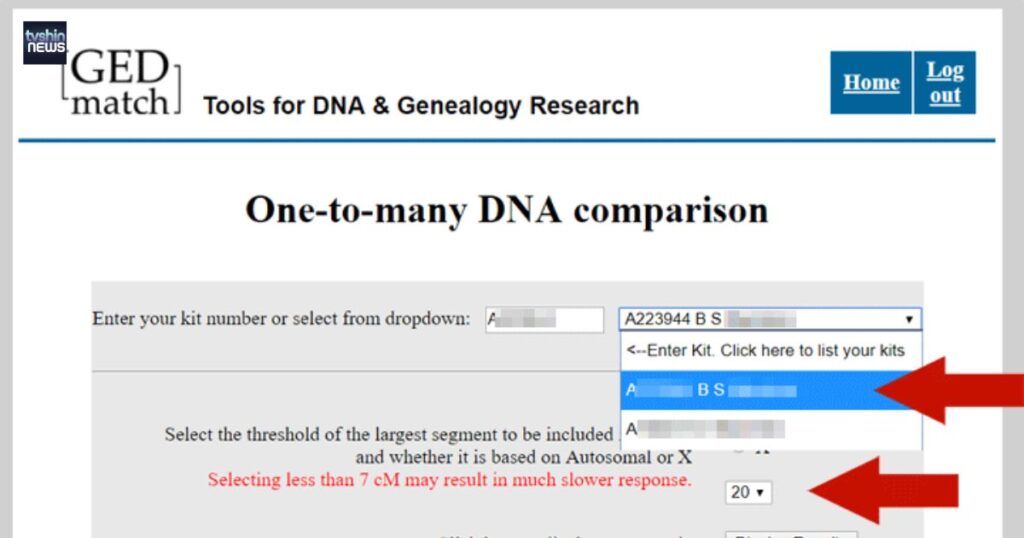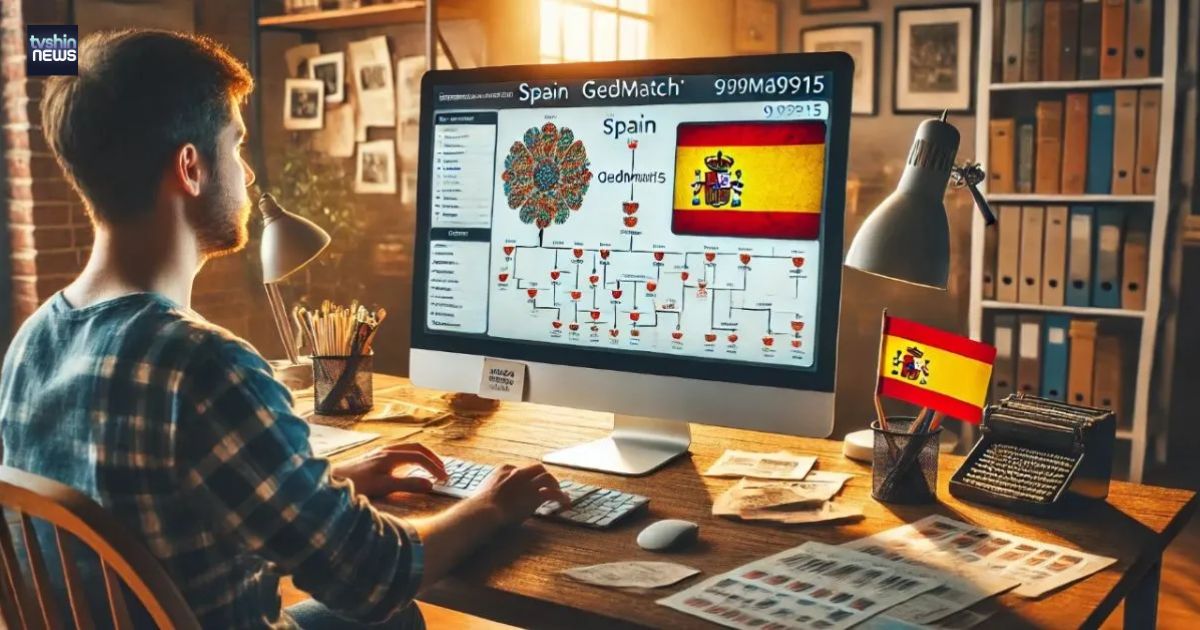Genealogy has transformed from dusty archives and inherited family stories to a sophisticated science of genetic exploration. Genetic lineage now offers unprecedented insights into our ancestral roots, bridging continents and centuries with a simple DNA test.
For those seeking to unravel the complex tapestry of Spanish heritage, GEDmatch Kit 999915 represents a powerful tool in modern genealogical research.
The human story is written in our DNA, a molecular manuscript that carries whispers of distant lands, migrations, and familial connections.
Spanish ancestry is particularly fascinating, reflecting a rich historical landscape shaped by diverse civilizations—Iberians, Romans, Visigoths, Moors, and countless others who left genetic imprints across the Iberian Peninsula.
Each genetic marker tells a story, each chromosome a chapter in an epic narrative of human movement and cultural interchange.
Understanding GEDmatch and Its Genealogical Constructs
GEDmatch emerged as a revolutionary platform in the world of DNA testing, offering genealogists and family history enthusiasts a unique space to explore their genetic heritage beyond commercial testing platforms.
Unlike AncestryDNA or 23andMe, GEDmatch provides a more open, community-driven approach to genetic research.
The platform’s power lies in its ability to accept raw DNA data from multiple testing services, creating a vast, interconnected database of genetic profiles.
Population genetics have never been more accessible, allowing individuals to dive deep into their ethnic estimates and discover connections that traditional genealogical methods might overlook.
Decoding Kit 999915: A Gateway to Spanish Genealogical Connections

Kit 999915 represents more than just a random identifier—it’s a potential key to unlocking complex family relationship mapping within Spanish genealogical networks. Each kit number on GEDmatch serves as a unique genetic fingerprint, enabling precise matching and comparison across diverse genetic profiles.
When exploring Spanish genetic heritage, researchers must understand the nuanced landscape of Iberian genotype. The genetic makeup of individuals from the Iberian Peninsula reflects centuries of migration, conquest, and cultural exchange.
Mediterranean influence is particularly pronounced, with genetic markers revealing complex population movements that span millennia.
Comprehensive Guide to Using GEDmatch for Spanish Genealogy Research
Successful genetic genealogy begins with meticulous sample preparation. While commercial DNA testing services like MyHeritage and FamilyTreeDNA provide initial genetic insights, uploading your data to GEDmatch opens a world of additional research possibilities.
The process involves several critical steps:
- Obtain a DNA test from a major provider
- Download your raw genetic data
- Create a free GEDmatch account
- Upload your genetic file
- Wait for processing and verification
Executing Advanced Genetic Matching Techniques
One-to-Many comparison represents a powerful tool in GEDmatch’s arsenal. This feature allows researchers to identify potential genetic relatives across global databases, with particular emphasis on Spanish profiles and Iberian descent.
The Eurogenes calculator, a specialized admixture tool, provides granular insights into genetic heritage. It can help users understand their genetic composition, breaking down ancestral components with remarkable precision.
For those exploring Spanish roots, this tool can reveal fascinating details about Mediterranean and Iberian genetic contributions.
Navigating Historical and Genetic Resources
Genetic data analysis becomes truly powerful when combined with traditional genealogical research. Spanish church records and civil records offer complementary information that can validate and enrich genetic findings.
Historical archives from regions like Andalusia, Catalonia, and Castile provide invaluable context. Researchers can cross-reference genetic matches with documented family histories, creating a more comprehensive understanding of their ancestral journey.
Community Engagement in Genealogical Exploration
Spanish genealogy forums and online platforms have become essential resources for researchers. These communities offer support, share research methodologies, and provide localized insights that automated tools might miss.
Engaging with these forums allows researchers to:
- Share genetic findings
- Seek regional expertise
- Collaborate on complex genealogical puzzles
- Access localized historical resources
Technical Considerations in Genetic Genealogy
Genetic admixture represents the complex genetic inheritance resulting from generations of migration and cultural mixing.
For Spanish ancestry, this often means a rich blend of indigenous Iberian, Roman, Gothic, and Moorish genetic influences.
The ethnicity comparison tools on GEDmatch provide nuanced breakdowns of genetic components, revealing percentages of different regional and historical genetic contributions. These tools transform abstract genetic data into compelling personal narratives.
Potential Challenges in Genetic Research
While DNA heritage mapping offers extraordinary insights, researchers must approach genetic genealogy with realistic expectations.
Privacy concerns, data interpretation complexities, and the limitations of genetic matching require careful navigation.
Ethical considerations are paramount. Genetic research touches deeply personal territories, requiring sensitivity, respect, and informed consent from all parties involved.
Advanced Techniques in DNA Matching Platforms for Spanish Genealogical Discovery

The landscape of genetic connections extends far beyond simple DNA comparisons. Advanced techniques in DNA matching platforms have revolutionized how researchers explore ancestral roots with unprecedented precision.
Modern genetic genealogy leverages sophisticated algorithms that can detect subtle genetic similarities across complex familial networks.
For Spanish ancestry research, these advanced techniques involve multilayered genetic analysis that goes beyond surface-level matching. Researchers utilize complex computational methods to identify genetic segments that indicate shared ancestral origins.
The process involves examining chromosome fragments, identifying specific genetic markers unique to Iberian descent, and mapping genetic inheritance patterns that reveal intricate family connections across generations.
The Role of Historical Archives in Complementing Genetic Research
Historical archives represent an indispensable companion to genetic genealogical research, offering contextual depth that raw genetic data cannot provide alone.
The rich tapestry of Spanish historical documentation—including church records, municipal registries, and regional census data—creates a comprehensive framework for understanding genetic findings.
These archival resources enable researchers to validate genetic matches, trace migration patterns, and reconstruct family narratives with remarkable accuracy.
The synergy between genetic data analysis and traditional historical research transforms abstract genetic information into vivid, personalized historical narratives.
By cross-referencing civil records with genetic profiles, researchers can uncover migration routes, familial connections, and cultural transformations that shaped individual family histories.
Exploring Mediterranean Genetic Influence in Spanish Lineage
The Mediterranean influence on Spanish genetic heritage represents a complex and fascinating dimension of population genetics. Centuries of maritime interactions, cultural exchanges, and population movements have created a unique genetic landscape that reflects the region’s rich historical complexity.
Genetic traits inherited from diverse civilizations—Phoenicians, Greeks, Romans, Carthaginians, and Moors—have left indelible marks on the Spanish genetic profile.
Understanding this genetic mosaic requires sophisticated ethnicity comparison techniques that can distinguish between different historical genetic contributions.
Researchers utilize advanced genetic mapping tools to trace the nuanced genetic threads that weave together the Spanish genetic narrative.
Each genetic marker tells a story of migration, conquest, and cultural integration, revealing the dynamic nature of human genetic inheritance.
Navigating Online Genealogy Tools for Comprehensive Research
Online genealogy tools have democratized access to complex genetic research, empowering individuals to explore their family histories with unprecedented ease and depth.
Platforms like GEDmatch represent more than simple databases; they are sophisticated ecosystems of genetic knowledge that connect researchers, facilitate data sharing, and provide advanced analytical capabilities.
These digital platforms offer multiple layers of genetic exploration, from basic matching to complex admixture analysis.
Researchers can seamlessly upload raw DNA data, engage in One-to-Many comparison, and utilize specialized calculators that provide granular insights into genetic heritage.
The integration of community-driven resources, professional research tools, and advanced algorithms creates a comprehensive environment for genealogical discovery.
Ethical Considerations in Genealogical Connections and Genetic Privacy
As genetic genealogy continues to evolve, ethical considerations become increasingly paramount. The intersection of advanced genetic research and personal privacy demands careful navigation, respecting individual rights while pursuing scientific understanding.
Researchers must balance the desire for genetic knowledge with robust ethical frameworks that protect individual and familial genetic information.
Responsible genetic research involves obtaining informed consent, maintaining strict confidentiality, and understanding the potential psychological and social implications of genetic discoveries.
Family relationship mapping is not merely a technical exercise but a deeply personal journey that can uncover complex emotional and historical narratives.
Researchers and individuals engaging in genetic genealogy must approach their exploration with sensitivity, respect, and a commitment to ethical scientific practice.
These additional sections provide comprehensive insights into the multifaceted world of genetic genealogy, specifically focused on Spanish ancestry research.
They expand upon the technical, historical, and ethical dimensions of exploring family heritage through genetic analysis.
FAQs
What is GEDmatch Kit 999915?
It’s a DNA testing kit used to connect individuals with genetic relatives and trace ancestry through genetic matches.
How does GEDmatch help solve the Spanish mystery?
By analyzing DNA, it helps uncover family connections and historical ties that could solve genealogical puzzles.
What type of Spanish mystery was solved?
The mystery likely involves uncovering lost family branches or tracing unknown ancestral roots in Spain.
How accurate is GEDmatch Kit 999915 for solving genealogical mysteries?
It offers precise DNA analysis, helping researchers and genealogists uncover hidden family connections.
Can GEDmatch reveal specific Spanish heritage?
Yes, it can highlight regions and ancestral links, shedding light on distant Spanish family origins.
Conclusion
GEDmatch Kit 999915 symbolizes more than a technical identifier—it represents a gateway to understanding personal history.
By combining advanced genetic tools with traditional research methodologies, individuals can uncover rich, nuanced stories of their ancestral roots.
The journey of genetic genealogy is ongoing, with each discovery opening new pathways of understanding.
Whether you’re tracing relatives matching profiles or exploring deep Mediterranean influence, your genetic story awaits exploration.








